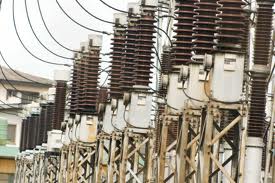The Bureau of Public Enterprises has said that one of the challenges of the power sector privatisation is that there will be no quick fix for power shortage in the country.
The Director-General, BPE, Mr. Benjamin Dikki, who made this statement, therefore, called for patience from all stakeholders especially the customers.
He said this while delivering a paper at the Regional Conference on Financing Infrastructure for Sustainable Development in West Africa, in Lagos on Tuesday.
He said, “Changes will not be immediate. Investments in the power sector will take time in order to achieve results. Construction of new generation capacity to achieve most of the results envisaged will take two to five years.
“Expectations will need to be managed for the public to understand that a power sector cannot be built overnight and that this country is recovering from decades of underinvestment and corresponding crumbling infrastructure.”
He expressed optimism that the private sector-driven power sector would, over the next few years, go through a period of rapid transformation, adding that capacity would increase.
The BPE boss, however, said investments being made in the sector would lead to some degree of unpredictability for the regulator, the government, the private sector and the public.
“The market will adjust to working under a new commercial framework based on bankable contracts that will require adjustments and upgrading of information available, systems and technologies in prices. All participants will need to show flexibility and adaptability to this situation of flux,” he said.
Dikki had, in a statement, cautioned that providing stable power supply in the country might not happen until three year’s time while stressing that investors would require two to three years to bring in the machinery to revamp the country’s generation and transmission infrastructure.
While appealing that investors should be given time to increase capacity, he said, “They (investors) will, after the takeover, re-tool and bring in new machinery like turbines, which are not easily bought off the shelf to put power on proper footing.
“They will need time to re-tool after the takeover and between two and three years to bring in the required machinery after which the country would witness increased and steady power supply.”
He specifically said Discos would have to invest about $1.8bn (about N288bn) as capital expenditure over the next five years to attain efficiency and meet the required capacity.
The Federal Government had on October 31, 2013, handed over to private investors some distribution and generation assets of the defunct Power Holding Company of Nigeria.
But the Chairman, Technical Committee, National Council on Privatisation, Mr. Atedo Peterside, said nine former PHCN generation companies (including Omotosho and Olorunsogo) only had available capacity of 2,692 megawatts as of September 10, as against a total installed capacity of 6,976.40MW.
Our correspondent also found out that as of November 3, 2013, power generation in the country stood at 3,418.60MW while the peak demand forecast was 12,800MW.
Consumers expect that the takeover of the power plants by private investors would immediately translate to an improvement in power supply, but Dikki, among other experts, called for caution and patience in this regard.





